The Hanging Gardens Of Babylon
The Hanging Gardens of Babylon were one of the Seven Wonders of the Ancient World. It's the only one of the Seven Wonders without a definitively established location. According to one legend, the Gardens were built alongside the palace known as The Marvel of Mankind by the king Nebuchadnezzar II (c. 605 and 562 BC) for his Median wife Queen Amytis, who missed the green hills of her home. The gardens are described as an example of ingenuity, engineering and beauty that looked like a tiered green hill with many terraces, hosting many plants, like shrubs, trees, and flowers.
Takkyubin Observatory Of Constantinople
Built by Taqi ad-Din Muhammad ibn Ma'ruf in 1577, the Constantinople observatory of Takkyubin (Taqi ad-Din) was one of the largest astronomical observatories in medieval world. However, its glory wasn't meant to last and it was destroyed in 1580, just three years after it had been built, because it wasn't just used for astronomy, but for astrology as well, a form of divination which is outlawed by the Sharia.
The Statue Of Zeus At Olympia
The Statue of Zeus at Olympia was a giant seated figure of Zeus, the king of the gods of Mount Olympus, that was about 41 ft tall, made by Greek sculptor Phidias around 435 BC at Olympia, Greece. The statue was commissioned by the Eleans, the hosts of the Olympic games, who wanted to rival the Athenian culture. The framework of the statue was wooden, and it was decorated with ivory and gold plates.
The Colossus Of Rhodes
The Colossus of Rhodes was a statue built to commemorate the successful defense of Rhodes city against a year-long siege by Demetrius Poliocretes. Standing approximately 108 feet tall, the tallest ancient statue is considered to be one of the original Seven Wonders of the Ancient World. However, it didn't stand for long: build by Chares of Lindos in 280BC, the colossus lasted only 54 years and collapsed during the earthquake of 226 BC. In accordance with a certain oracle, the Rhodians did not build it again. In the 21st century, there were proposals to build a new Colossus at Rhodes Harbor, and in 2015, some architects proposed a promising project, though some scholars criticize the location, claiming that it couldn't have been the original spot.
The Tower Of Babel
The Tower of Babel is a mythical structure mentioned in the book of Genesis in the Old Testament. It's an origin myth meant to explain why people speak different languages. While the Tower of Babel is considered by many to be a fictional structure, some scholars associate it with known structures in Babylon and Sumeria.
The Acropolis Of Athens
The Acropolis of Athens is an ancient citadel built on a rocky hill overlooking the city of Athens. The Athenian Acropolis is a giant ensemble of buildings, with the Parthenon being the famous one. To this day, only several significant ancient buildings remain of the citadel. Pericles, a famous historical figure, coordinated the construction of the buildings that are considered to be the most important ones, like the Parthenon, the Propylaea, the Erechteion and the Temple of Athena Nike. The Parthenon and the other buildings were seriously damaged during the 1687 siege by the Venetians, as they hit the gunpowder storage at the Parthenon with a cannonball and it exploded.
The Great Sphinx Of Giza
The Great Sphinx of Giza is speculated to have been built by the Egyptians of the Old Kingdom during the reign of Khafre (c. 2558–2532 BC), whose face it appears to represent. It's made of limestone and was cut from the bedrock. Measured at 240 ft long from paw to tail, and 66 ft high, it's the oldest known monumental sculpture in Egypt, and one of the most well-recognized statues throughout the globe.
The Great Temple At Petra
The Great Temple at Petra was a colossal complex finished in around the first century CE, under the rule of Nabatean king Aretas IV. It's not clear whether the building was designed for religious or for administrative purposes, and if it was religious, it remains unclear to what kind of deity it had been built. The vast ensemble of buildings occupies around 81,375 square feet and is well preserved compared to the other monuments on this list.
The Temple Of Artemis
The Artemision, or the Temple of Artemis, as it is more widely known, was dedicated to Artemis (Roman equivalent was Diana), the Greek goddess of the hunt, wilderness, wild animals, the Moon and chastity, a sister of Apollo. Located in Ephesus, the temple was completely rebuilt twice, once after a flood and another after an arson. By 401 AD it had been completely destroyed, and only the fragments and foundations of the last temple remain.
The earliest version of the temple dates back to the Bronze Age, while the construction of the final version of the Temple began around 550 BC and took approximately 10 years to complete.
The Mausoleum At Halicarnassus
Built between 353 and 350 BC, the Mausoleum at Halicarnassus was the tomb for the Anatolian ruler of Caria, Mausolus, and his wife, Artemisia II. The structure was around 148 ft in height, and each of its sides was decorated with sculptural reliefs created by prominent Greek sculptors. Though the word mausoleum originally refers to the tomb of Mausolus, the word itself became associated with any kind of above-ground tomb.

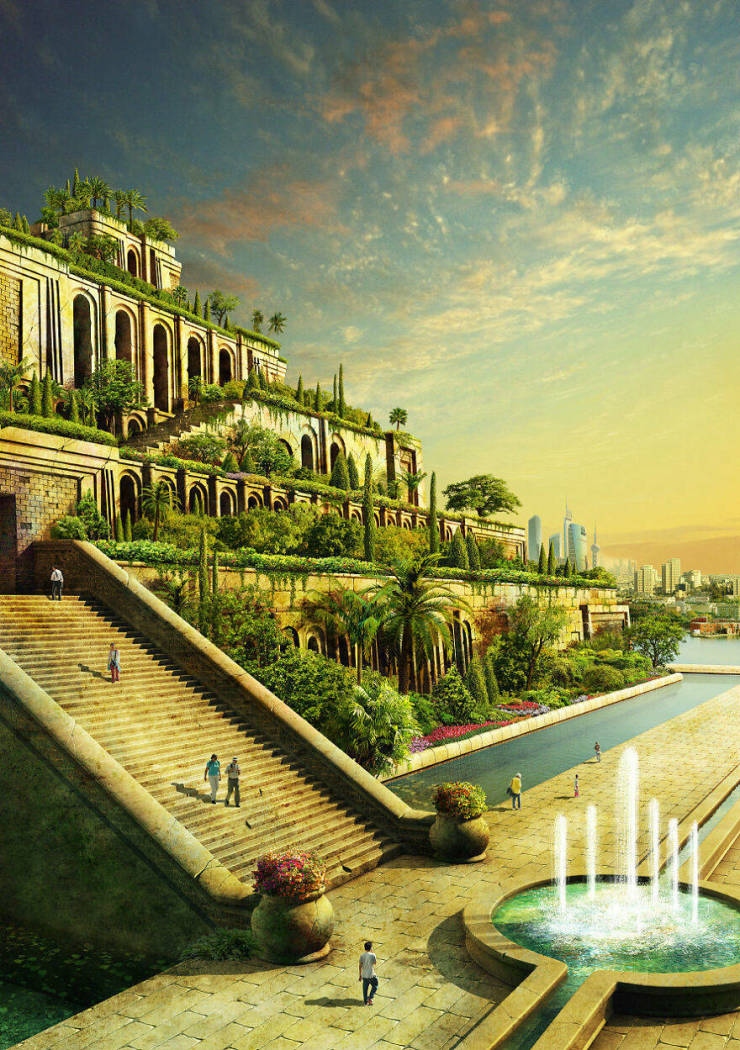
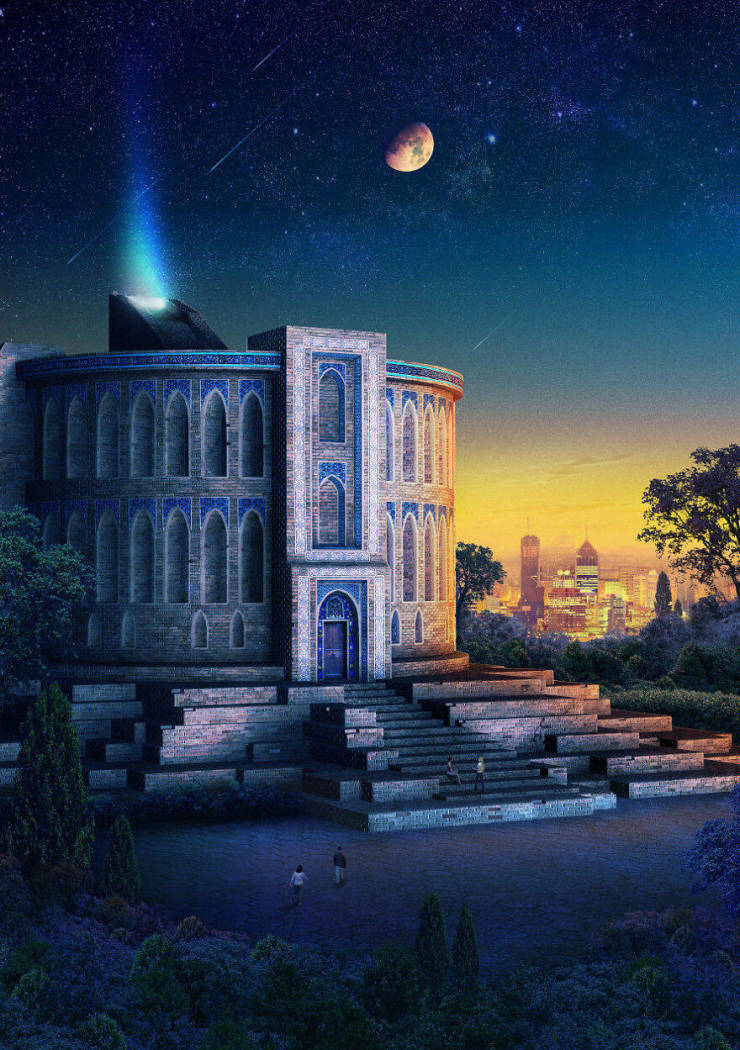
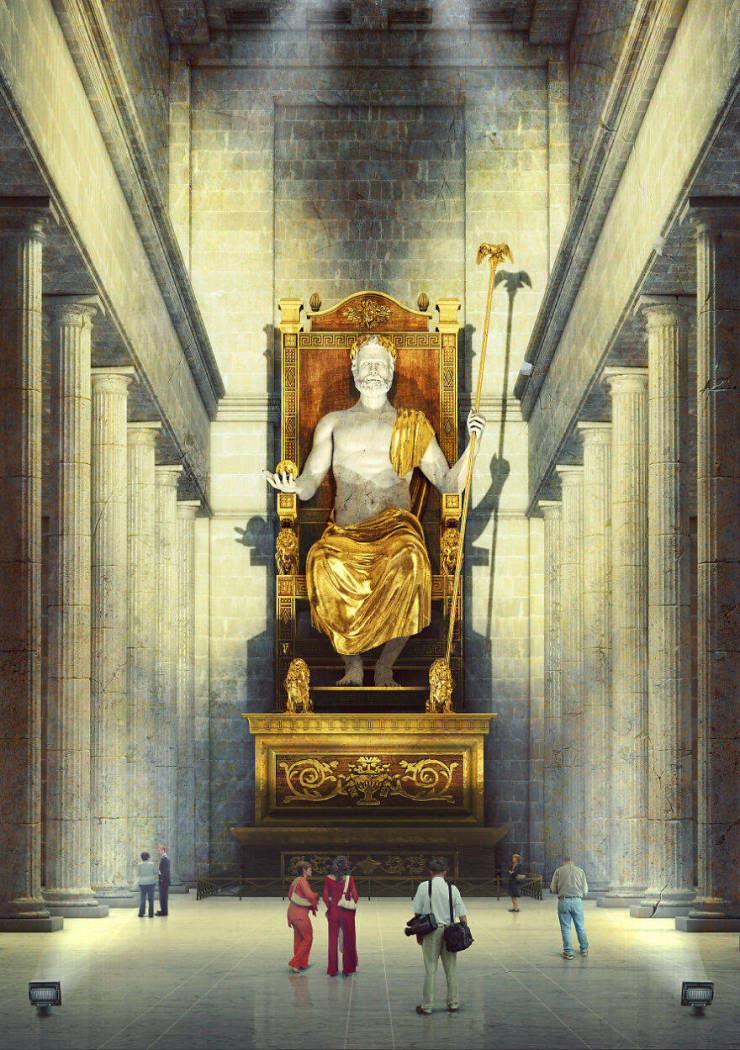
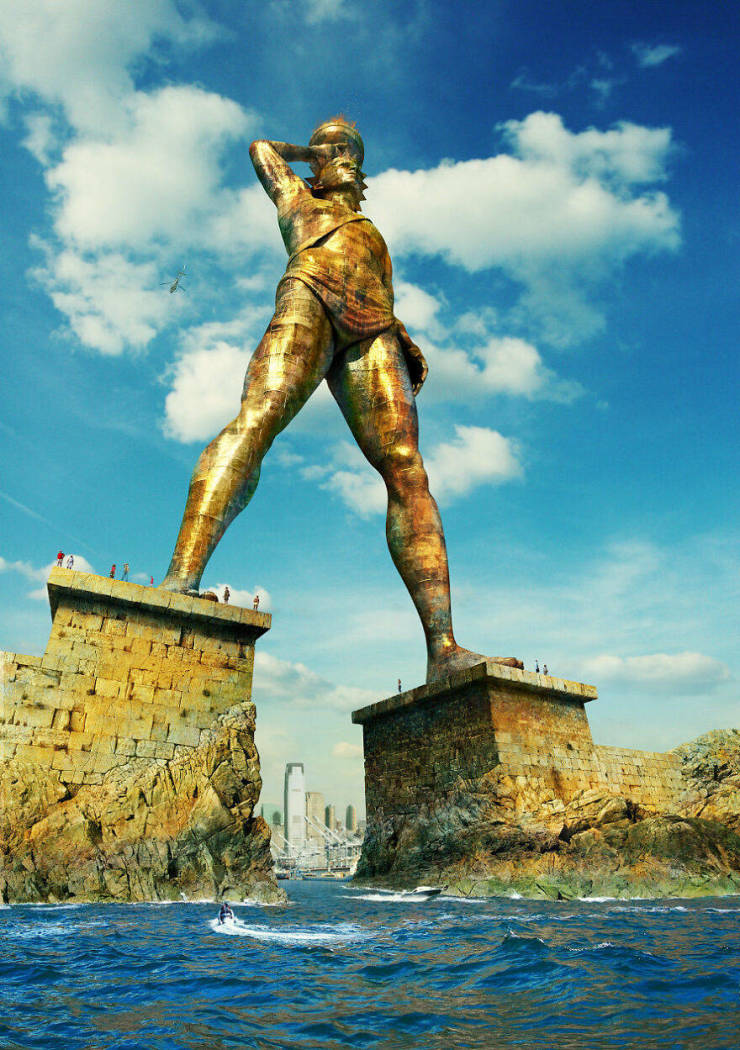
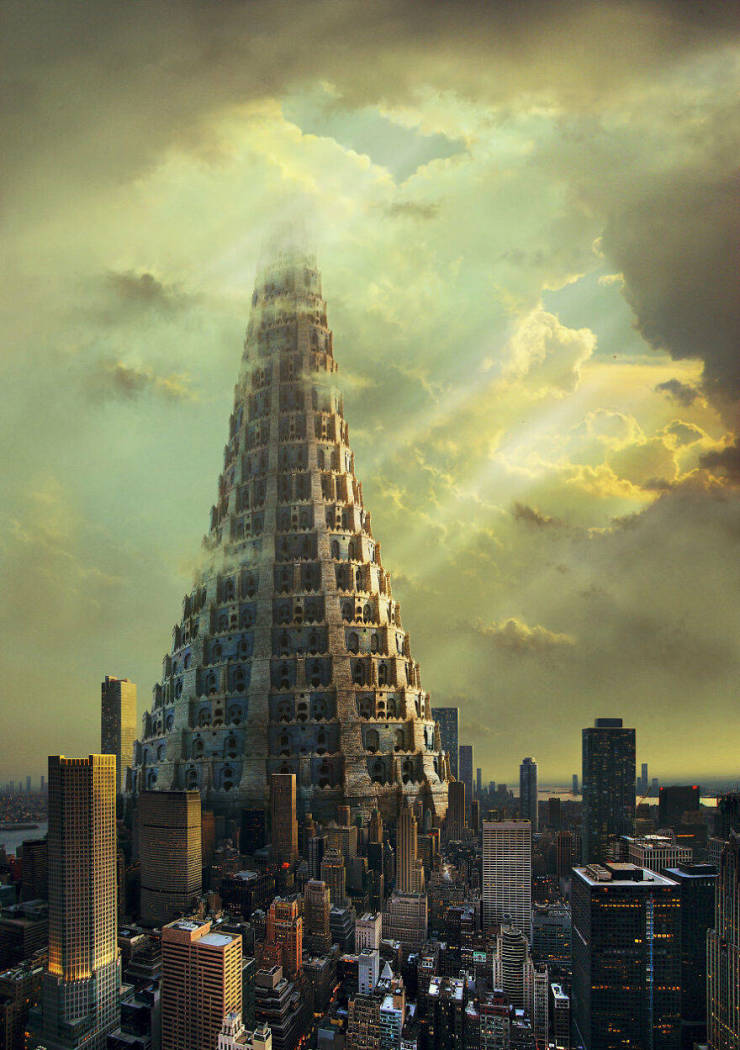
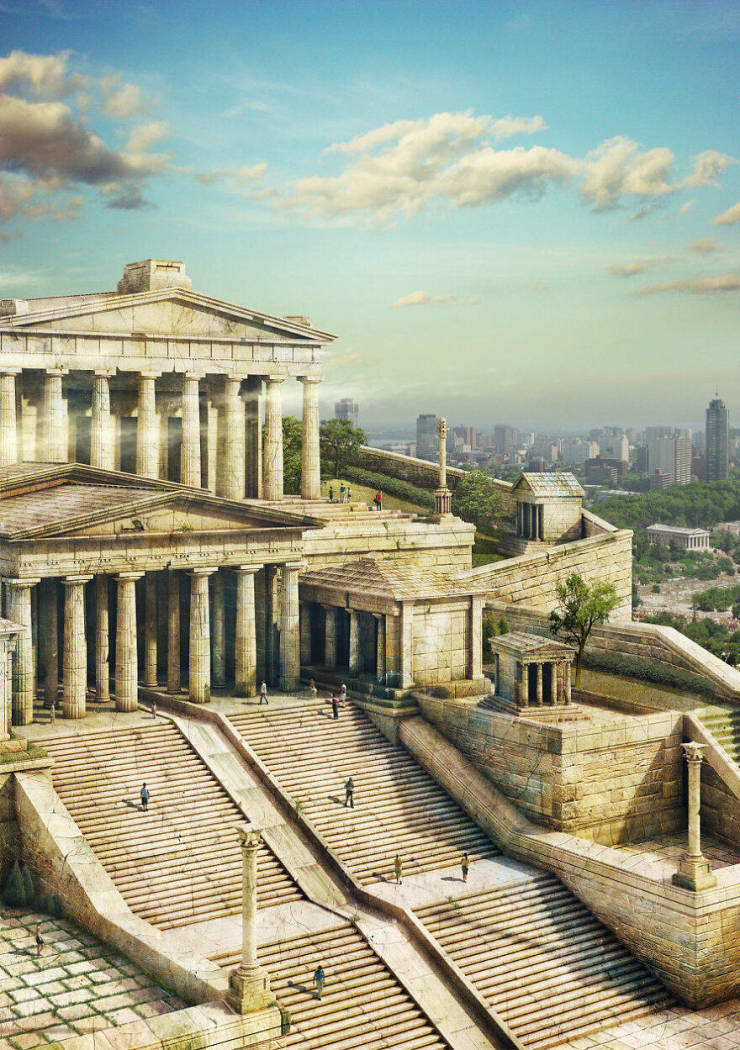
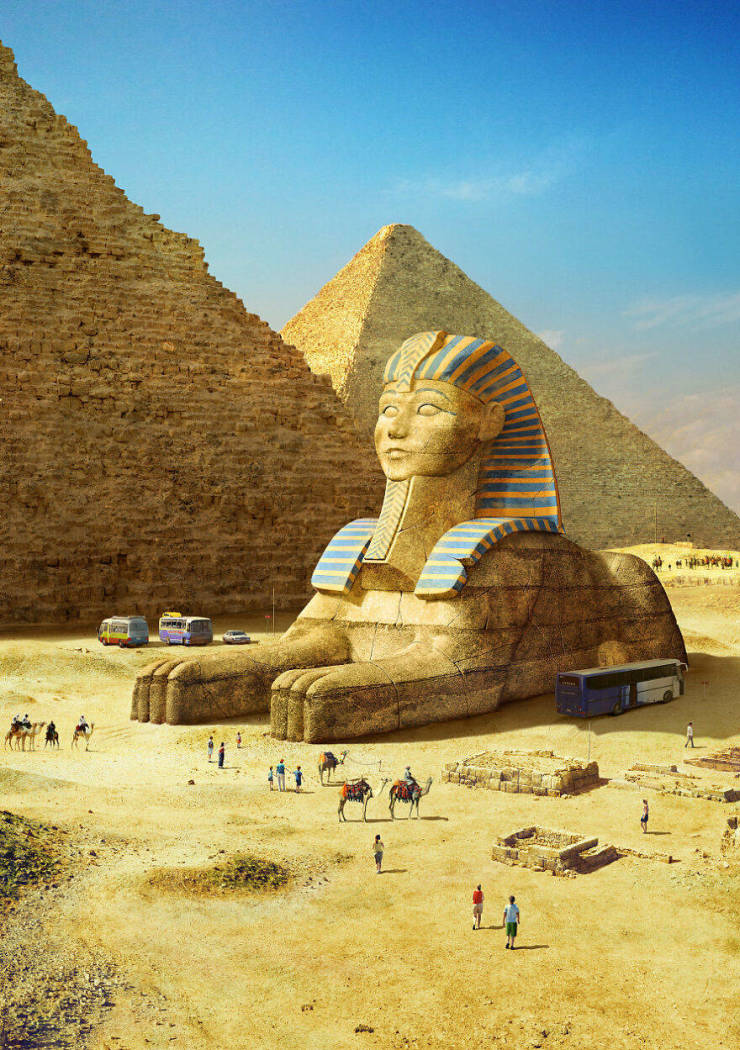
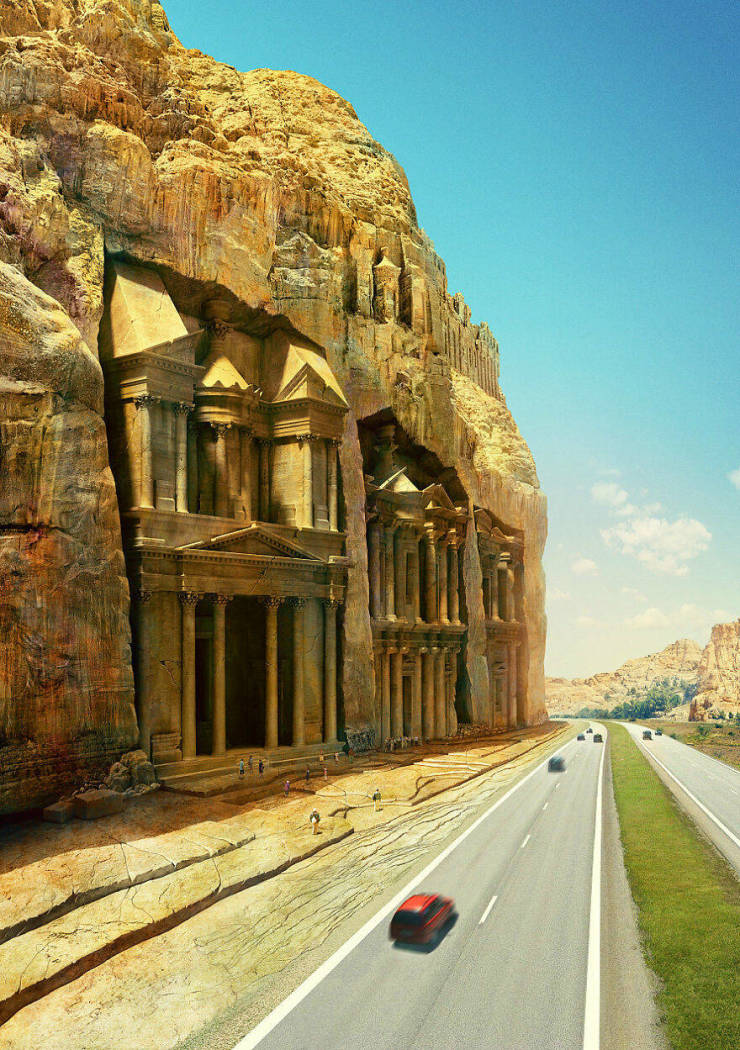
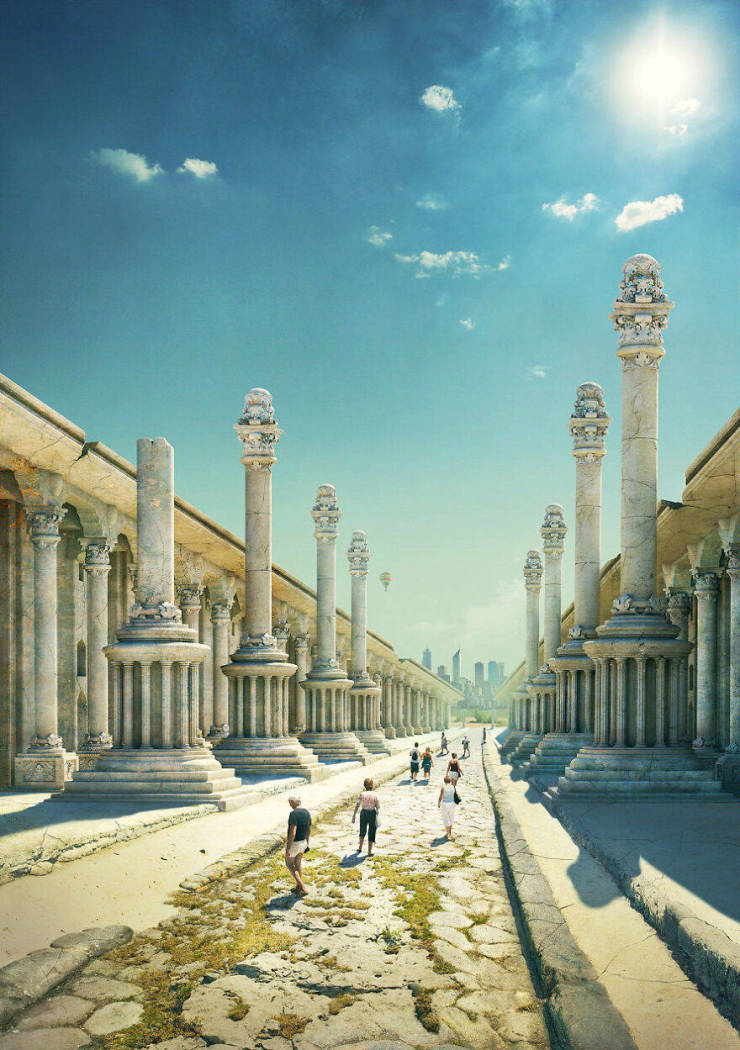
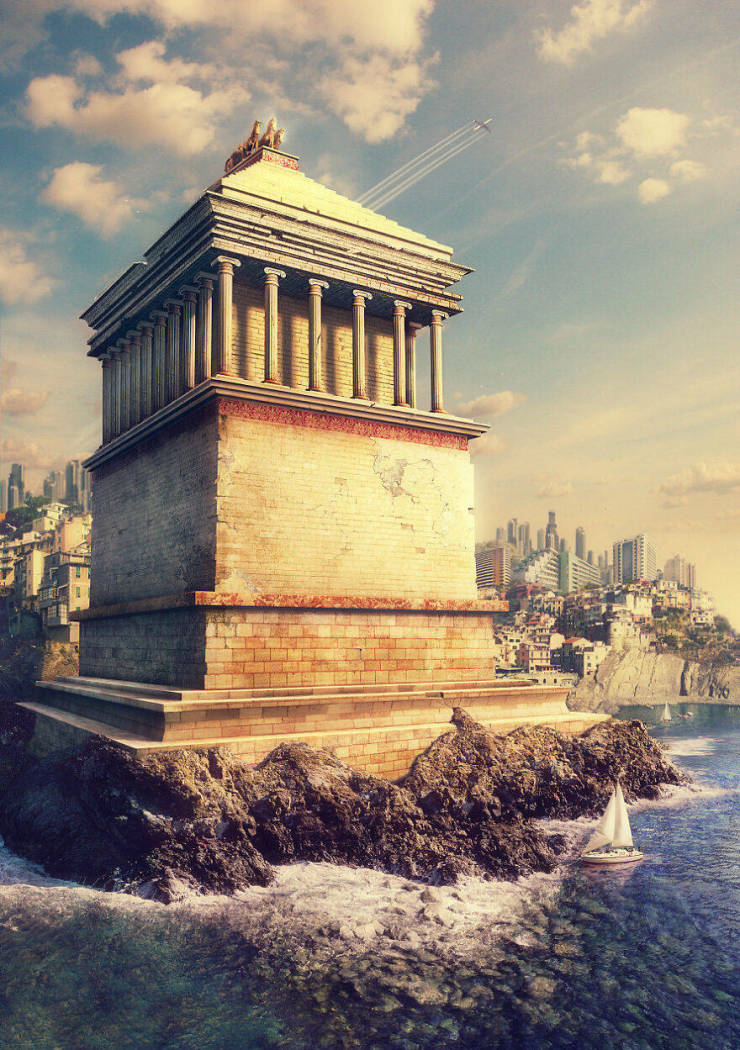



no one could know how this fantasy building would have looked if it was real, like saurons tower ;)
lighthouse?